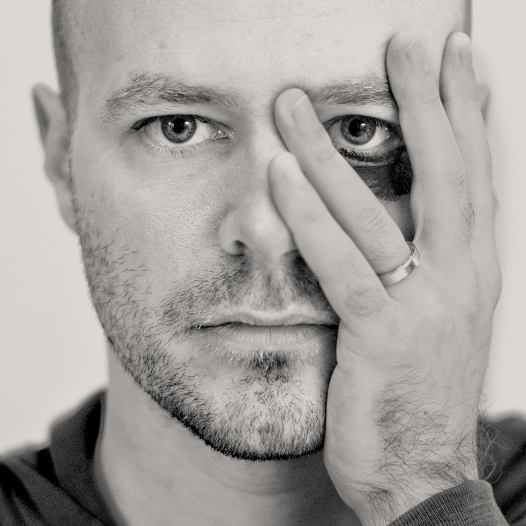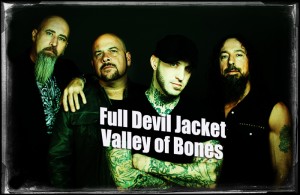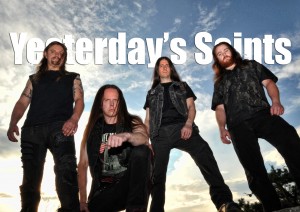Derek Webb: The Anatomy of the Artist and the Heart of the Man
5 min read
There are very few artists in the music business that are as controversial as Derek Webb. Sure there are other advocates and political activists out there, but many of them do so much of their talking away from their music whereas Derek Webb seems to ruffle the most feathers from the front of the stage. Ironically, and because Derek’s music comes from Nashville – whose foundations include the home of Contemporary Christian Music itself, it’s often hard to separate what’s redeeming about the art that is born from that environment and reconciling that with the lyrical philosophy of the song writer himself. That is, of course, unless you’re Derek Webb. For Derek, it’s easy to separate art from philosophy…taking it a step further it’s easy to make that separation when you understand that there is definitely a difference between artistic expression and music with an agenda, which he shared in an interview with C6M’s very own Jacob Taylor recently.
“I think art is at its least useful when it’s being used as a tool to do something other than communicate the intrinsic value of the art. A Trojan Horse is not a piece of art. A Trojan Horse is a tool. And using art as a tool just is not its best use. I’ve never really approached it like that, and I don’t really see a lot of good art coming from a position of trying to use art as a tool to put something in and push it through. So, I don’t really do that, and I don’t know a lot of my friends who do that sort of thing. A lot of people who play what might be called Christian music, I know that tends to be one of the more primary uses of it. And they’re certainly at liberty to do that.”
So what is the philosophy behind the music and why is his music so polarizing? It seems like the source of controversy begins and ends in what circles he seems to find himself. Derek has been seen spending a good deal of his time touring in support of another controversial artist, Jennifer Knapp, whose recent “coming out” has caused many in the Evangelical Christian community to wonder about allegiances and whether or not the artists they support are walking the traditional party line. Even as Derek seems to sidestep the issue by saying,
“Jen’s an old friend. We’ve known each other for a long time. I really dig her stuff. She’s got a really cool new record coming out. There’s nothing controversial about good music.”
It is clear that this where the new battle lines are being drawn – between sex and sexuality – between dogma and tradition. And all of this amounts to the question of whether or not one can even be a Christian without sacrificing artistic integrity or being forced to draw some defining lines in the process. Can anyone do it without compromising the very fabric of one’s belief system? Or should the artist, for a lack of a better term, drop their friends like a bad habit? Putting it another way, and speaking in strictly musical terms Derek’s response on who he surrounds himself with is clearly defined by how he sees music,
“I’m typically interested in good music rather than bad music. I’m willing to listen to any music that’s good. And I’m happy to disregard any music that’s not. That said, my friends come from all over the map. And I’m certainly not opposed to having friends who play what other people might consider conventional Christian music. Just relationally, if someone is cool, I’m willing to forgive them for playing music I might not understand, just as I would hope they’d forgive me for the same.”
It is this ideology that has allowed him to create songs that are outside of the recent trend of commercial spirituality and possibly why he so vehemently promotes his album The Stockholm Syndrome on his personal website that reads more like a parental warning label to the not so faint of heart.
“If you bought the Stockholm Syndrome anywhere but derekwebb.com, you did not buy the whole album.”
This is his not so silent protest to the label that initially refused to carry the entire record based on the song What Matters More – a controversial song in the Contemporary Christian world due to the uncommon use of what might be considered a profane word. If he’s separated himself, it was long before he decided to walk in mixed company. If he separated himself, it might have been before Stockholm, but that’s where some would finally see the tear in the fabric.
So what’s with all the controversy? In this day and age are the lines that are being drawn in the sand mere declarations or are they in fact a true battle cry for social change? And do they need to be either controversial or polarizing at all? Maybe or maybe not, in any case, Derek has not divorced himself from his roots entirely. He will be producing the upcoming Caedmon’s Call album, a fact that might suggest that even the differences in the ideologies of the band itself might still compatible with who he is now. So apart from his solo career it’s interesting when asked again to define what it is that he does or the art in its unsaved state as he talks about the new Caedmon’s Call record,
“I personally wouldn’t consider the new Caedmon’s record Christian. Just like I really can’t imagine considering any piece of music Christian. I don’t think there’s any such thing as redeemed art or art that is inherently true or beautiful because of the people who made it. I think as soon as my hands touch anything, I wreck it. I can’t imagine, knowing myself as I do, that anything I would make could possibly be called Christian.”
If you’ve reached this part of this analysis of Derek Webb, I know that you must also be asking if the definition of art can lend itself to an exact definition? Can it? Lyrics certainly speak of one’s influence and possibly the flavor in which one chooses to express oneself, but do they necessarily make anything clearly this or that? Derek might have a point…can art be anything else except the end result of a person’s desire for expression? Given everything we know and even though some might still consider some forms of music to be a contributing factor to the saving grace in a world gone crazy without Jesus….does it even deserve that place that some pretend it should? In the end, I’m inclined to agree with Derek Webb because music has caused me to think and even caused me to feel, but music has never made a decision to follow anything except its own creator. And maybe we should too.







Great article. Very well written. Thanks guys!
I have yet to hear a DW song that doesn't bring more of Christ into things Christian, and that includes the profane lyrics and Stockholm Syndrome. Taken as a body of work, his art illuminates dark corners Christians have been carefully burying for generations.
Can't wait to hear his worship album 🙂